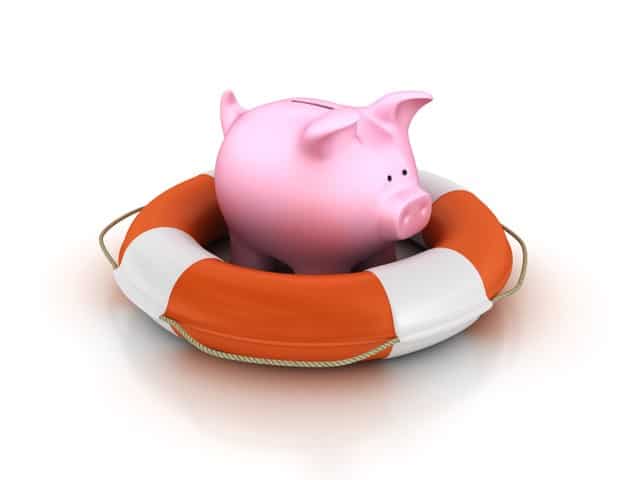Having an emergency fund is like having great shock absorbers on a car—if you hit a bump, you can feel safe knowing you won’t be jostled around. An emergency fund functions the same way. When you hit a bump in life—whether unexpected medical bills or losing a job—emergency savings are there to absorb some of that shock. We have answered some questions on how to start an emergency fund and maintain it for your financial future.
What Is an Emergency Fund?
An emergency fund is extra savings set aside to be used in times of financial distress, including the loss of a job, illness, major home or car repairs, and more. The point is to only use this fund for exactly what it’s named after—emergencies!
Emergency savings funds are usually made of highly liquid assets, like cash, so you’re less likely to need to take out money from higher-interest options like loans or credit cards.
Why Should I Have an Emergency Fund?
You should have an emergency saving plan to take financial stress out of already tough situations. Having an emergency fund is a safety net for when life happens, and it could prevent you from going into debt and worrying about money during a difficult time.
For example, if you were to lose your job but had an emergency fund, you could use that money to pay for housing, food, and utilities while out of work. This could prevent you from adding to your debt and allow you to focus on the situation at hand.
How Much Should I Have in My Emergency Fund?
There are many factors to consider when determining how much to save for an emergency fund. If you’re a relatively healthy person living in a low-cost area with reliable transportation, stable income, and minimal debt or dependents, your recommended emergency fund is at least three to six months of savings. However, many experts encourage having an average emergency fund that covers six months to a year’s worth of living expenses if you’re the sole provider for your family, retired, a homeowner, or any other factors that might require additional funds.
To help you determine how much your emergency fund should be, use our free emergency savings calculator and begin saving for your 6-month or 12-month emergency fund today!
Where Should I Keep My Emergency Fund?
You can keep your emergency money in a variety of accounts like an emergency savings account or a money market account. However, the best account for emergency funds is one that is easily accessible because you’ll want your money right away if unexpected expenses come up.
How Can I Start an Emergency Fund?
Saving for an emergency fund can be simple. The first step in starting an emergency fund is deciding on a savings goal. Determine an amount that you are comfortable setting aside each month. An emergency fund account can then behave like any other monthly expense.
Once you’ve determined a savings goal, you can start putting money towards it. One way to stay consistent with contributing to your emergency savings is by setting up automatic transfers. Automatic transfers ensure that you don’t forget to put that money away or accidentally spend it. Once you hit your goal, you can redirect that automatic savings towards another goal or other monthly expenses.
Building an emergency fund can be extremely helpful when there are bumps in the road. It is meant to be a safety net, so the bigger you build it, the more cushion you’ll have available to use.
Have more questions about how to build your emergency fund and savings? Centris Federal Credit Union can help answer them! Connect with us today by visiting our website, giving us a call at (402) 334-7000 or visiting one of our branches.



